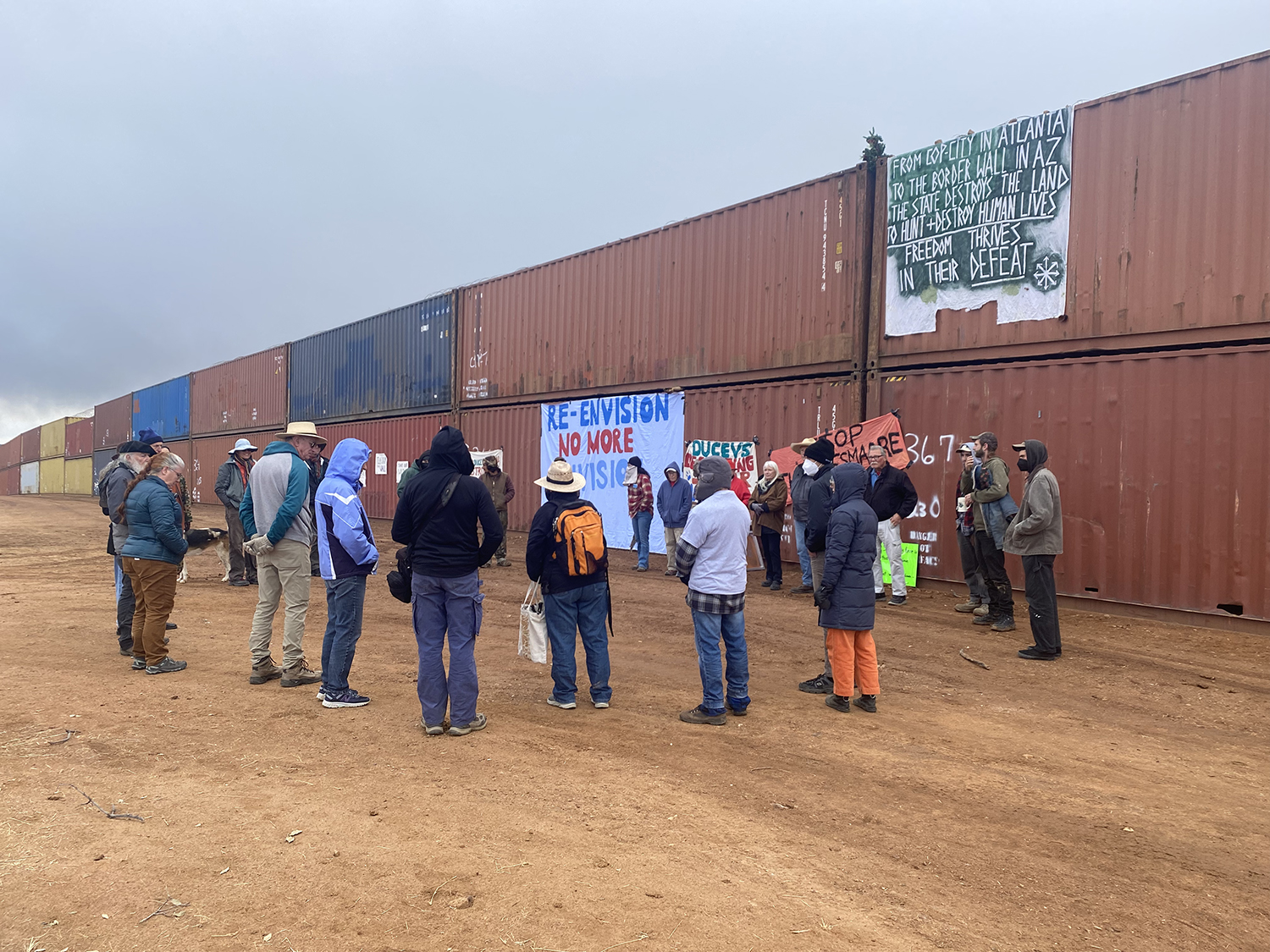Border Blog—February 9, 2023: Standing Our Ground at Border Wall
In November, members of the Sonoran and Tucson Broadbands (AZ) joined with other conservation groups and concerned citizens to take action against the construction of former Arizona Gov. Doug Ducey’s bizarre, shoddy, and illegal shipping container “wall” in Coronado National Forest along the U.S.-Mexico Border.
There wasn’t any expectation that they would even be successful, however the protesters (or, perhaps more accurately, the “protectors”) just had the feeling that their voices needed to be heard. So, they gathered to stand watch along a 60-foot-wide stretch of federal land known as the Roosevelt Reservation and held their ground in the presence of the construction vehicles and security forces. It seemingly worked, too, as no more containers were placed during the daytime…
 But after the first week, what had started as a daytime protest became a 24/7 action when the protectors found out the contractors began placing shipping containers late at night. A makeshift camp immediately sprung up—dubbed “Camp Ocelot” after the desert wildcat—allowing the protectors to be there when the contractors showed up.
But after the first week, what had started as a daytime protest became a 24/7 action when the protectors found out the contractors began placing shipping containers late at night. A makeshift camp immediately sprung up—dubbed “Camp Ocelot” after the desert wildcat—allowing the protectors to be there when the contractors showed up.
When they did, around 2:00 AM, the protectors jumped from their tents, and in freezing temperatures, held their ground in the face of the oncoming equipment. And it worked—no more shipping containers were placed. As this action was going on, Broadband leaders from across the country sent letters to the Department of Justice (DOJ) asking them to file suit against the state of Arizona to demand the container wall be removed.
Finally, on December 18th, the Department of Justice (DOI) announced that they would file suit against the Ducey administration to stop any more construction on the container wall.
With construction of the wall stopped, the protectors finally broke camp on December 18th. Before departing, they came together for one last time to talk about what they had accomplished.
“The protest felt more like a celebration,” said Sonoran Broadband Co-Leader Emily Matyas. “The folks who had actually stopped the construction by physically being in the way were quiet heroes.”
“It was like a spiritual experience,” she added.
This shipping container structure was located in a particularly sensitive wildlife corridor, and the construction process damaged sensitive desert soils and destroyed vegetation. In addition, the move by Ducey could have set a dangerous precedent on how states deal with federal lands.
On January 1st, crews began prepping for the removal of the shipping containers in Coronado National Forest. The Department of Homeland Security and the Customs and Border Patrol said that there are no plans to replace the containers with any sort of permanent border wall in that area— the plans only include filling in some small gaps and gates near Sasabe, Nogales, Naco, and Yuma.
The last of the container wall was removed by January 31. Concurrent to this, the new Arizona governor, Katie Hobbs, announced plans to end a lawsuit filed by the Ducey administration claiming state ownership of the Roosevelt Reservation.
Sonoran Broadband Co-Leader Roz Switzer says their actions have shifted to monitoring and remediation.
“A small group of people, moving with purpose and love for the Earth, stopped the progression of the shipping container wall construction by standing up to the State and prodding the federal government to act,” says Switzer. “Our actions make a difference.”

